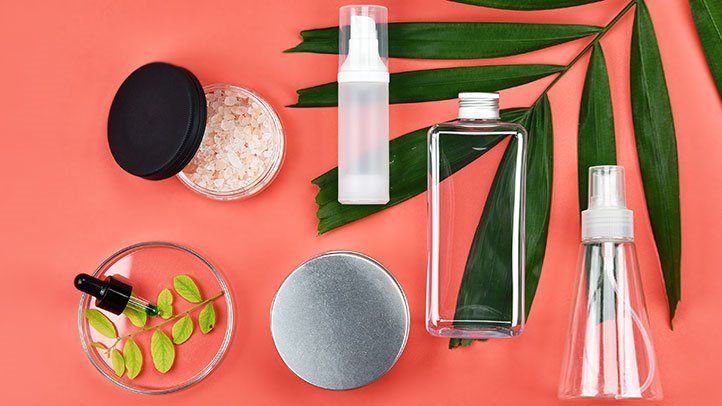
You may not be aware of it, but many of the beauty products you rub into your skin are absorbed deep into your body’s system.
Many cosmetic and skin care products contain many different types of chemicals. Recently, there has been growing alarm about the effects these chemicals might have on the body after long-term exposure. If you take a closer look at the labeling of the skincare products in your bathroom cabinet, you’ll see that many of them have a huge ingredients list with a bewildering cocktail of chemicals included.
So What Are These Chemicals For?
Largely, the chemicals are artificial replacements for more expensive natural ingredients which have been used in our skincare products for thousands of years. The chemicals act as preservatives, fragrances, texture enhancers, and colorings. Basically, it’s not really necessary to fill skin care products with these substances – it’s just cheaper.
And What Concerns Have There Been About The Use Of These Chemicals in Skincare?
Here are a few commonly used chemicals in skin care with documented and possible side effects: –
- Ammonium Lauryl Sulfate – Can damage hair, eyes, and skin. Commonly used in shampoo and facial wash.
- Butylparaben – Is a skin irritant. May cause irritation to the eyes and dermatitis. Used commonly as a preservative in many skin care products.
- Formaldehyde (no, seriously, they put that in your beauty products!). Also known as Formalin and Formol. – Acutely toxic if inhaled. Will irritate skin, eyes, nose, and throat. Causes asthma attacks. Nausea, vomiting, rashes, and headaches. It might be a carcinogen. We rub this into our skin in anti-aging products, shampoos, facial creams, and anti-dandruff shampoo.
- Lanolin – can cause an allergic reaction. This product which is derived from sheep wool is often contaminated as a result of environmental factors affecting the sheep from which it is extracted. Pesticides and fertilizers can find their way into your skin via products containing this substance.
- Methylparaben – Can cause skin irritation and contact dermatitis. There are unproven links to breast cancer. Used as a preservative in cosmetics and soaps.
What Can We Do To Avoid Chemical Products?
The good news is that we don’t actually need to have these chemicals in our skin products. They’re only there because it’s cheap and easy… natural alternatives do exactly the same thing.
All you have to do is make sure that you are buying products free of artificial chemicals. There are a growing number of trusted retailers selling chemical-free skin care products, and also products with excellent organic credentials to avoid issues with contamination by pesticides and fertilizers.
